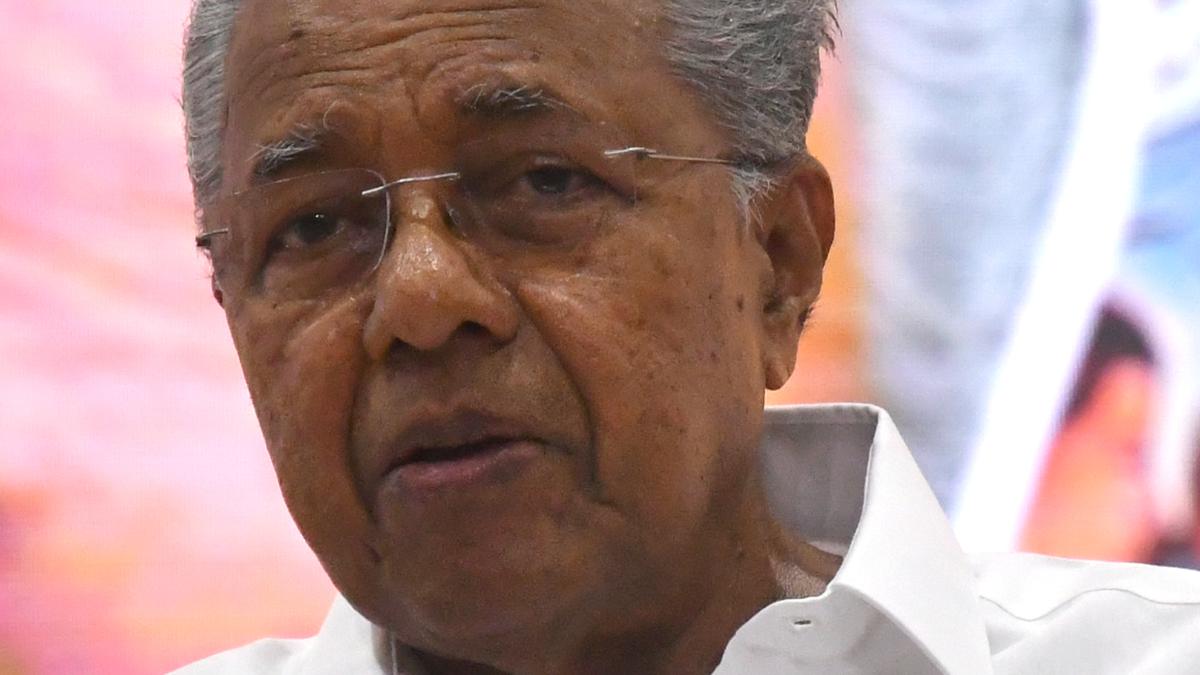
Kerala CM demands Union Govt to examine the propriety of Governor Khan’s actions
The Hindu
Kerala CM Pinarayi Vijayan accuses Governor Arif Mohammed Khan of provocation & breaches of protocol; Justice Nariman criticizes Governor's acts.
Accusing Kerala Governor Arif Mohammed Khan of attempts to create maximum provocation in every issue, Chief Minister Pinarayi Vijayan said that the Union Government should examine the propriety of the Governor’s repeated breaches of protocol. He was speaking to media persons at Pathanamthitta on December 17, on the sidelines of the Navakerala Sadas — a public outreach programme by the Left Democratic Front (LDF) Government.
“Earlier, I had said that the Governor is making wilful attempts to destroy the peaceful atmosphere of Kerala. Each of his actions in the following days in a way proved it right. The Governor often forgets the position that he occupies now, and makes comments unbecoming of that position,” said Mr. Vijayan.
He said that the Governor’s actions as the Chancellor were naturally bound to attract protests. The Chancellor is supposed to nominate persons to the University senate from the panel provided by the University, but he chose to nominate people from a list provided by the Rashtriya Swayamsevak Sangh (RSS).
“The Governor claims that he used his discretionary powers to make nominations to the senate. But, such powers can only be used to nominate people from the panel of names provided by the University. Can he identify and nominate people on his own? Though the panel provided by the University had people with all the necessary qualifications, the only criteria followed in the Governor’s nominations were that they belong to the RSS. These actions have led to strong protests of the students,” said Mr. Vijayan.
He accused the Governor of using harsh words against the protestors and branding them as criminals and goondas, in a manner unbecoming of a person who has been in public life for long in various capacities. “Has anyone occupying such a position ever personally confronted protestors waving black flags at them? In a democratic system, there is a basic right to protest. Even when there were protests against us, none of us intervened personally. The police will intervene in such situations,” he said.
Referring to former Supreme Court Judge Justice Rohinton Nariman’s comments on Mr. Khan two days back, Mr. Vijayan said that the whole country is now paying attention to the Governor’s acts. Justice Nariman had criticised the Governor for sitting on bills passed by the legislature, and later referring these to the President after the Supreme Court wrapped him on the knuckles.













